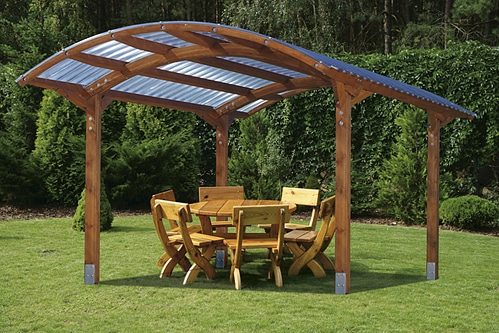
Any summer resident knows how important it is to have a well-prepared and equipped place to relax on the site. It should save from the summer heat and heavy rains, and also be a place for common meals and evening gatherings. We want to tell you how to build a canopy in the country with your own hands, since this design fully meets the stated requirements.
country awnings
Varieties and purpose
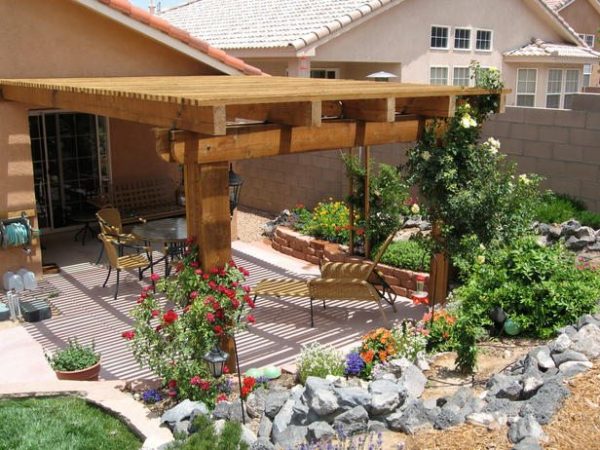
To understand the whole variety of different types and models of canopies for a suburban area, you should understand the fact that the design depends on the tasks.In other words, the purpose is primary - the design is secondary.
If you want a temporary shelter for short and infrequent visits during the summer months, then you should generally look at ready-made, collapsible tents, available in abundance at any drugstore. Such a model is convenient in that after being used for its intended purpose, it can be quickly and easily disassembled and hidden in the house, in addition, it can be taken not only to the country.
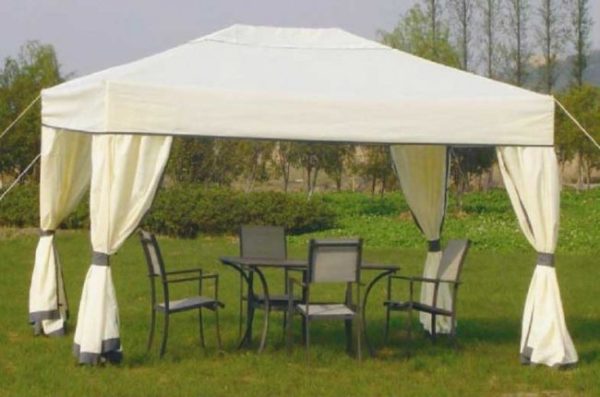
If the summer cottage is your second home, then you should consider capital structures, and it is better to build a gazebo or summer kitchen, with a barbecue area and an outdoor stove.
But if you, like most other urban residents, treat your dacha with moderate admiration and adequately, then you should pay attention to the usual canopy built over a prepared area, under which a dining table and an average family of 4 - 5 people can fit.
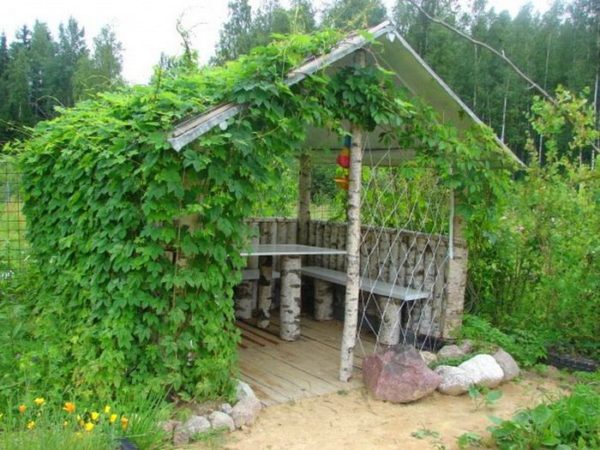
If you need a carport for a car, then both the dimensions and the type of construction are approximately clear. If you want to have a shelter from the sun and bad weather for relaxing alone, then a small canopy over the bench is enough for you.
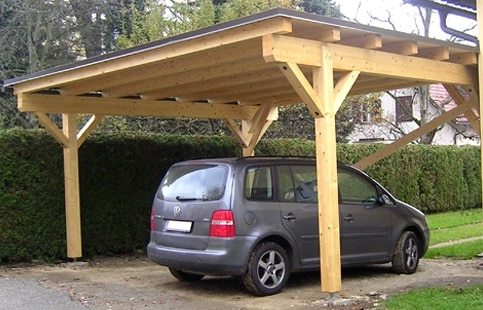
Finally, if you want not only the participants of the feast to hide under the canopy, but also children to play nearby, dogs to walk and guests to dance, then you need a serious and capital large canopy.
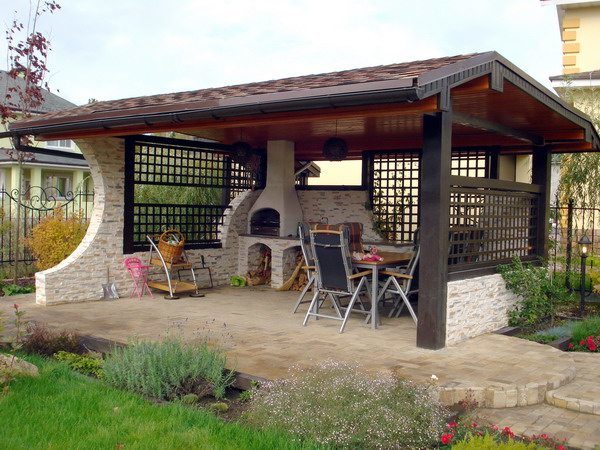
Important! It is advisable to determine the purpose, and hence the type of design, in advance in order to be ready in terms of the cost of materials and the complexity of the work, as well as the availability of a suitable place on the site.
Design
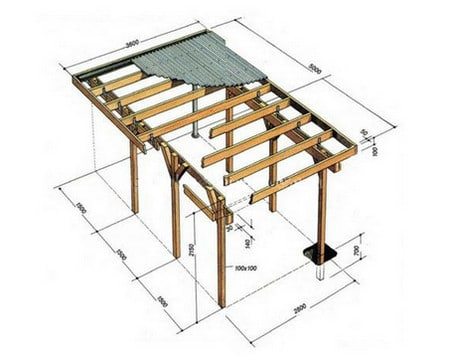
Now a little about the design itself. If this is just a canopy, and we are talking about canopies, then the design consists of two main parts:
- support poles. These can be concreted logs or pieces of timber, metal pipes or other rolled products, walls of houses and outbuildings, trees, etc. The supporting part is very important, as it takes on all the loads from the weight of the roof, wind pressure and precipitation;
- Rafter system and roofing. Options are also possible here: single-pitched, double-pitched, four-pitched, hipped, hip, domed and other types of roofs can take place. The angle of inclination of the slopes and the strength of the structure depend on the size of the product and the climatic features of the area, it is especially important to know the wind load and the amount of snow falling in winter.
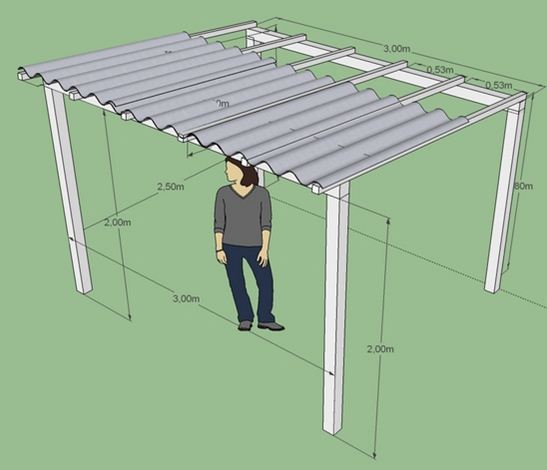
Important! If you have built a visor on four or more pillars, then it is easy to turn it into a gazebo or a summer house for relaxation.
Thus, we see that we should decide on the arrangement of supporting structures and choose the type of roof. The rest of the information is available, moreover, it is clearly presented in this article.
materials
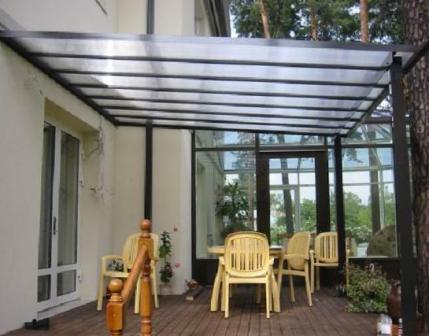
You can build a canopy from almost anything, but we will consider the most proven and popular options:
- Brick pillars with wooden truss system.An excellent option, the most reliable and durable, but the price of such pleasure may surprise you and make you look for other options;
- All-metal construction. From the point of view of reliability and durability, it does not raise questions, but from the point of view of beauty and comfort, it is a clear outsider. Of course, you can order a wrought-iron gazebo and remove the issue of beauty, but it costs a little less than a small capital house;
- Wooden roof on metal supports. Strong, reliable, durable, the question of beauty and relevance is partly removed, however, steel poles will bring dissonance into the atmosphere of a country holiday;
- Completely wooden construction. With proper processing of materials, it is quite a reliable option. In terms of cost, relevance, beauty, comfort and other indicators - the undoubted leader of the list;
- The roof usually repeats the material of the roof of the house, so the gazebo will fit better into the ensemble of your site. Sometimes bold solutions are used and various polymers are used, transparent, translucent and matte, an example of such a material is polycarbonate.
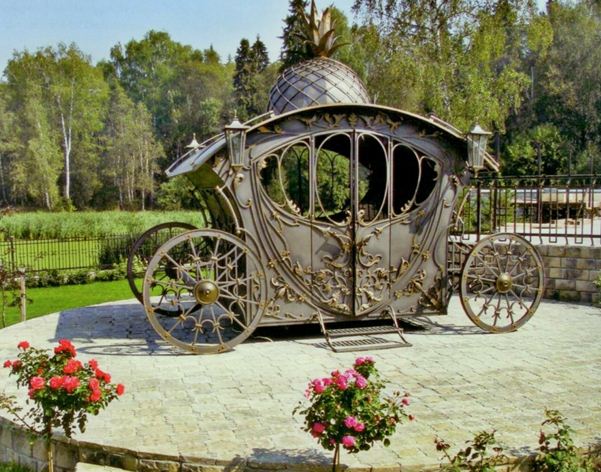
Important! The choice of materials will determine the method of installation and other technical details, so think about whether you can handle welding steel elements or laying bricks with foundation work, or is it better to opt for familiar and easy-to-work wood.
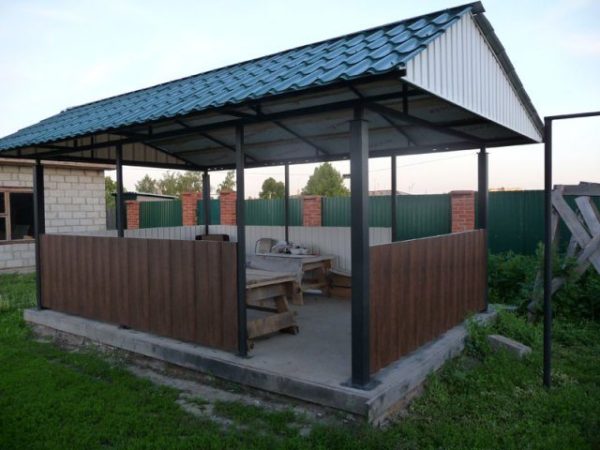
In our humble subjective opinion, a simple wooden structure is best suited for giving.
Location selection
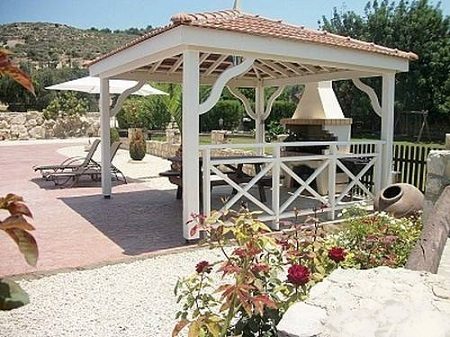
So, we figured out the purpose and design of our canopy, selected materials for it, it remains to choose a suitable place - and you can start building.
When choosing a place, there are two approaches: closer and more comfortable, or farther, but more comfortable. Ideally, they are combined.
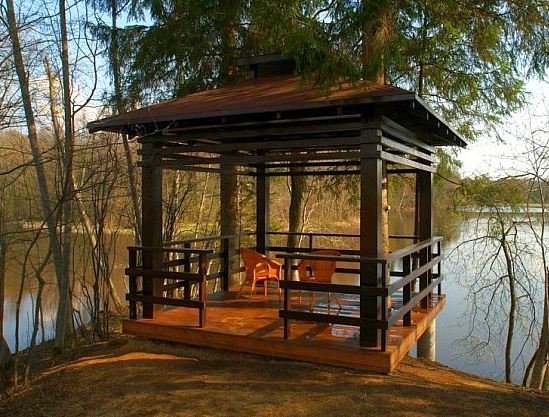
Important! The question of destination again arises: for reading books it is better to retire in the depths of the garden, for cooking and feasts you want to be closer to the house, sources of water and fire, so that everything is nearby and everything is visible. It's up to you to decide.
Of course, there are general rules: recreation areas are not located near cesspools, toilets, drain or sewage sewers, septic tanks and other sewage collectors.
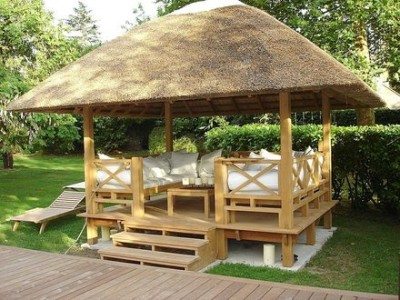
Also, you should not be located near public roads, neighbors' houses, other people's plots, etc. You should be comfortable, and real comfort is impossible without a sense of privacy and security.
Installation
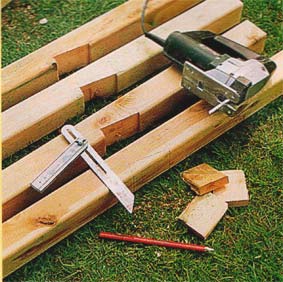
In this section, we will tell you how to build a canopy yourself. To make it clearer and easier, the story will be replaced by a step-by-step instruction:
- We mark the site according to a pre-drawn drawing. We determine the location of the supporting pillars and dig holes 70 cm deep and 30x30 cm in size;
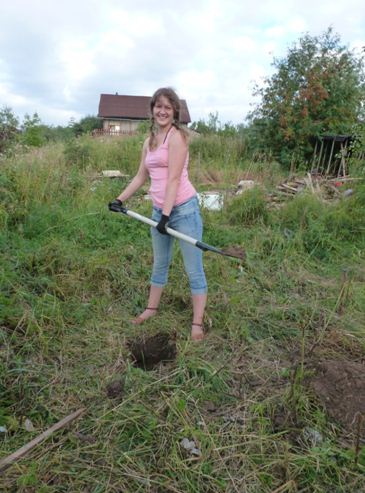
- We pour 15 cm of gravel and tamp, then cut out four pieces of timber or logs 15–20 cm in diameter or 150x150 mm in cross section, open the lower 60 cm with bituminous mastic, insert the posts into the pits and concrete with a solution of 1: 3: 5 (cement / sand / crushed stone). We set the pillars strictly vertically and fix them with temporary supports;
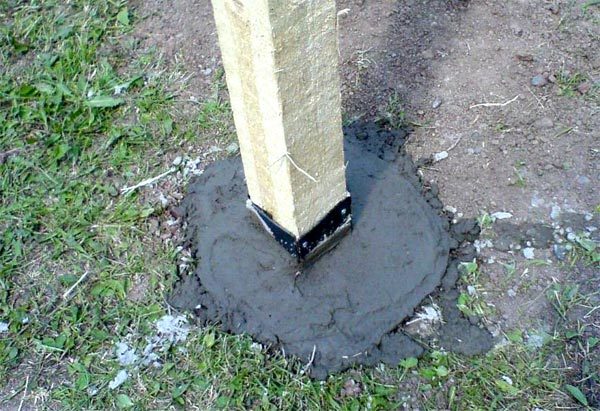
- When the concrete has hardened and gained strength (from 3 to 10 days), we proceed to the upper strapping. To do this, we connect all the pillars around the perimeter with a beam of 150x50 mm, which we connect with a cut into half a tree, and fasten to the pillars with nails 150 mm, steel corners and self-tapping screws;
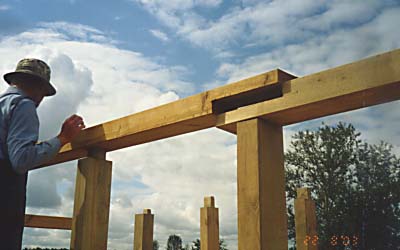
- On the upper trim, we lay rafters from a board 150x50 mm, placed on the edge with a step of 70 - 100 cm. Then we sew the rafters with a crate from any board or plywood (depending on the type of roofing material);
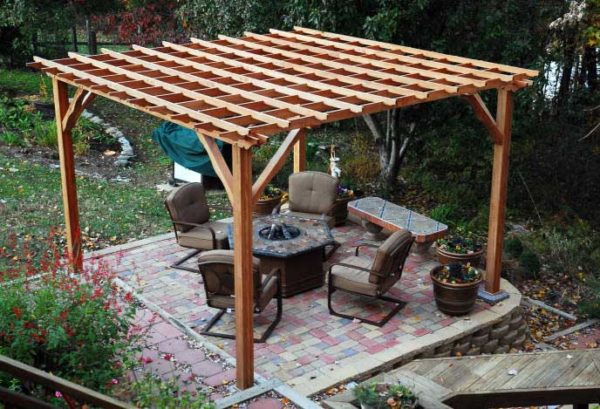
- We lay roofing material that suits your home and site as a whole. We sew the side parts of the truss system with platbands from a board cut to size.
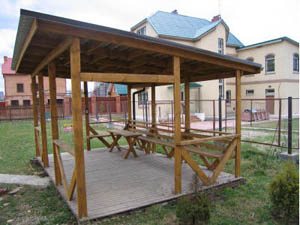
Important! Since we have a shed roof, the front pillars should be 50 - 70 cm higher than the rear ones. The easiest way is to buy three-meter bars and cut them after installation under the control of the water level or level.
Conclusion
The cottage should have a well-designed and well-equipped place for rest and shelter. The video in this article and our guide will help you understand how to build a canopy with your own hands.
Did the article help you?
